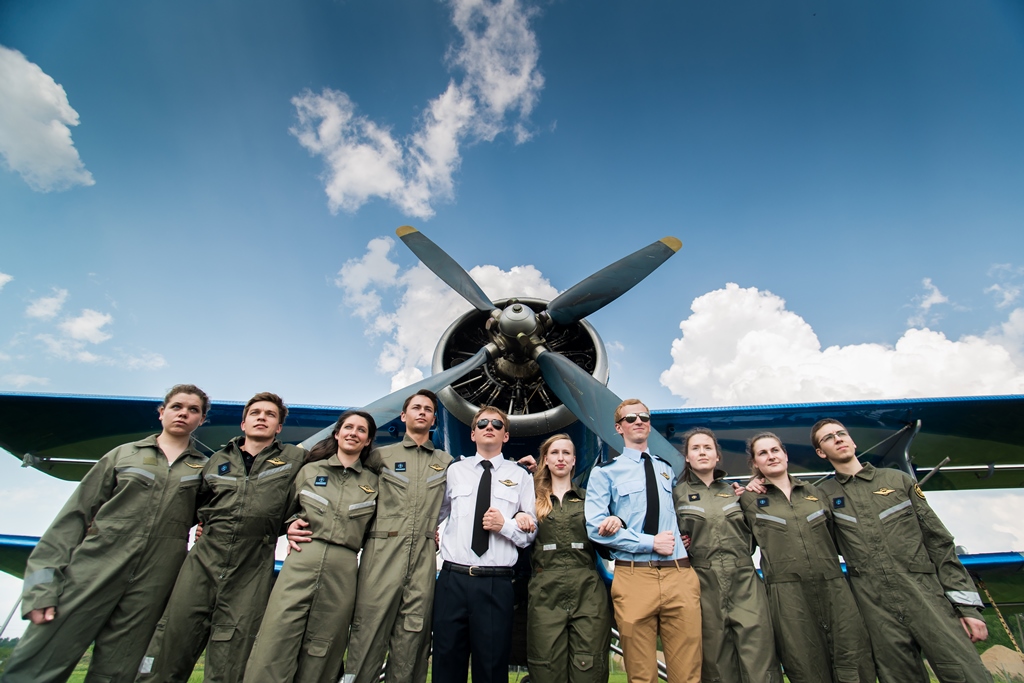- Programmes in English 2025/2026
- Admission 2024/2025 Scholarships
- For exchange students
- Free Movers
- Transfer studies
- Erasmus+ studies and traineeships
- Mentor programme
- Student testimonials
- Accommodation
- Career Services
- Medical Care
- Immigration Regulations
- Leisure and Student Activities
- Useful information
- VILNIUS TECH for Creators of Tomorrow
- Mental and spiritual support
- Representatives Abroad
- Contacts
- Computer Engineering

2014-06-11
VGTU new study program - for the space conquest
Because of the development of the aviation technique and rising interest in the space technology, Vilnius Gediminas Technical University (VGTU) Antanas Gustaitis' Aviation Institute is the first and the only institution in Lithuania, from this autumn starting to train engineers in avionics. After finishing these studies, an aviation engineer will be able to construct and operate an aircraft’s management and maintenance systems as well as take part in designing of an automatic aircraft or a spacecraft.
About ninety per cent of the problems in aviation is the result of the human factor, because the failure probability of control systems of an aircraft is constantly decreasing, due to the application of the advanced modern digital avionics systems. With the development of these technologies, the targets for an aviation engineer are becoming even more complex. In order to create the systems, allowing to avoid human errors, the need of a new integrated training appears. So, a future avionics engineer will acquire a wide range of knowledge and skills in electronics and appliances, as well as in electrical and computer systems.
"The aircrafts are constantly improved technically, in order to become even safer, faster and more comfortable, at the same time, the requirements for the management of their digital systems are also being revised. A professional, using modern flight management systems, has got the responsibility to develop, test, manage and monitor the computerized devices, navigation, communication and other internal systems, designed to ensure aircraft’s functioning. The same systems are used for the automatic aircrafts, gaining popularity nowadays, for the artificial satellites or spacecraft, so avionics can be called the specialty of the future‘‘ - said Jonas Stankūnas, the Director of VGTU Antanas Gustaitis' Aviation Institute.
Avionics deals with the electrical, electronic and equipment systems of an aircraft, so an aviation engineer will acquire good knowledge of the electrical and electronic engineering and will learn the basics of the design and programming systems. The new VGTU studies programme will allow to solve the problems of electronics and automatic management control, to develop new systems and their functional devices, to analyse and interpret the data.
The identical systems are used in a spacecraft and satellite, too. According to J. Stankūnas, in the future, an avionics engineer will face even greater challenges, and in collaboration with other specialists, will develop aircrafts, rising up into the space.
The analogous electrical and radio equipment systems, operating in an autonomous way, earlier used in aircrafts, nowadays have been changed by the digital systems, heavily integrated and controlled electronically. Currently, an aircraft is almost by one hundred per cent digitalized.
The avionics graduates will be also able to apply their broad knowledge and contribute to other fields of activities, particularly in the automotive, railway or ship transport, with the integrated automated control, navigation, and surveillance systems used there.
VGTU Antanas Gustaitis' Aviation Institute’s Avionics studies program is accredited for the five-year period by the Centre for Quality Assessment in Higher Education.
About ninety per cent of the problems in aviation is the result of the human factor, because the failure probability of control systems of an aircraft is constantly decreasing, due to the application of the advanced modern digital avionics systems. With the development of these technologies, the targets for an aviation engineer are becoming even more complex. In order to create the systems, allowing to avoid human errors, the need of a new integrated training appears. So, a future avionics engineer will acquire a wide range of knowledge and skills in electronics and appliances, as well as in electrical and computer systems.
"The aircrafts are constantly improved technically, in order to become even safer, faster and more comfortable, at the same time, the requirements for the management of their digital systems are also being revised. A professional, using modern flight management systems, has got the responsibility to develop, test, manage and monitor the computerized devices, navigation, communication and other internal systems, designed to ensure aircraft’s functioning. The same systems are used for the automatic aircrafts, gaining popularity nowadays, for the artificial satellites or spacecraft, so avionics can be called the specialty of the future‘‘ - said Jonas Stankūnas, the Director of VGTU Antanas Gustaitis' Aviation Institute.
Avionics deals with the electrical, electronic and equipment systems of an aircraft, so an aviation engineer will acquire good knowledge of the electrical and electronic engineering and will learn the basics of the design and programming systems. The new VGTU studies programme will allow to solve the problems of electronics and automatic management control, to develop new systems and their functional devices, to analyse and interpret the data.
The identical systems are used in a spacecraft and satellite, too. According to J. Stankūnas, in the future, an avionics engineer will face even greater challenges, and in collaboration with other specialists, will develop aircrafts, rising up into the space.
The analogous electrical and radio equipment systems, operating in an autonomous way, earlier used in aircrafts, nowadays have been changed by the digital systems, heavily integrated and controlled electronically. Currently, an aircraft is almost by one hundred per cent digitalized.
The avionics graduates will be also able to apply their broad knowledge and contribute to other fields of activities, particularly in the automotive, railway or ship transport, with the integrated automated control, navigation, and surveillance systems used there.
VGTU Antanas Gustaitis' Aviation Institute’s Avionics studies program is accredited for the five-year period by the Centre for Quality Assessment in Higher Education.











